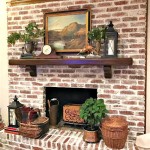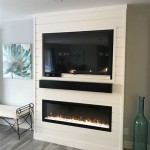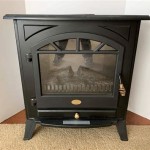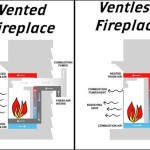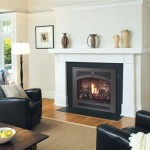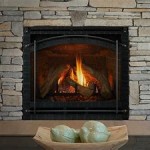Wood Burning Stove Fireplace: A Comprehensive Guide
Wood burning stove fireplaces represent a significant evolution from traditional open fireplaces. They offer enhanced heating efficiency, increased safety, and a more controlled combustion process. This article provides a comprehensive overview of wood burning stove fireplaces, covering their functionality, advantages, installation considerations, maintenance requirements, and associated safety protocols.
A wood burning stove fireplace, at its core, is a closed combustion chamber designed to burn wood fuel efficiently. Unlike open fireplaces, which lose a significant portion of heat up the chimney, wood stoves are designed to radiate heat into the room. They achieve this through various design features, including airtight construction, insulated fireboxes, and baffles that redirect exhaust gases, maximizing heat transfer before they exit through the flue.
The typical wood burning stove fireplace consists of several key components. The firebox is the central area where the wood is burned. The door, typically made of cast iron or steel with a glass window, allows for loading fuel and observing the fire. A damper controls the airflow to regulate the combustion rate. The flue collar connects the stove to the chimney, facilitating the expulsion of exhaust gases. Baffles, often made of refractory materials, are strategically placed within the firebox to slow down the passage of hot gases, allowing for more complete combustion and heat extraction. Some models also include ash pans for easy removal of ash.
The performance of a wood burning stove fireplace is measured by its heating efficiency and its emissions output. Heating efficiency refers to the percentage of the wood's energy that is converted into usable heat within the room. Modern wood stoves are designed to achieve high heating efficiencies, often exceeding 70% or even 80%. Emissions output refers to the amount of pollutants released into the atmosphere during combustion. The Environmental Protection Agency (EPA) regulates wood stove emissions to ensure compliance with air quality standards. EPA-certified stoves incorporate advanced combustion technologies to reduce particulate matter (PM) emissions, carbon monoxide (CO) emissions, and other harmful pollutants.
Key Benefits of Wood Burning Stove Fireplaces
One of the primary advantages of a wood burning stove fireplace is its superior heating efficiency compared to traditional open fireplaces. Open fireplaces typically have heating efficiencies of only 10-20%, meaning that the majority of the heat is lost up the chimney. Wood stoves, on the other hand, are designed to maximize heat transfer, providing a more efficient and cost-effective heating solution. This improved efficiency translates into lower fuel consumption and reduced heating bills.
Wood burning stove fireplaces offer improved safety compared to open fireplaces. The closed combustion chamber prevents sparks and embers from escaping into the room, reducing the risk of fire hazards. The door of the stove also prevents children and pets from coming into direct contact with the fire. Furthermore, modern wood stoves are often equipped with safety features such as overfire protection and automatic shut-off mechanisms.
Modern wood burning stove fireplaces offer a greater degree of control over the combustion process. The adjustable damper allows users to regulate the airflow and control the burning rate, thereby influencing the heat output. This control enables users to tailor the heat to their specific needs and preferences. The ability to control the combustion process also contributes to cleaner burning and reduced emissions.
Installation Considerations for Wood Burning Stove Fireplaces
Proper installation is crucial for the safe and efficient operation of a wood burning stove fireplace. It is highly recommended to hire a qualified professional installer who is familiar with local building codes and regulations. Improper installation can lead to fire hazards, carbon monoxide poisoning, and other serious risks. These professionals can also ensure the proper connection to the chimney and other essential components.
The chimney is a critical component of a wood burning stove fireplace system. It must be properly sized and constructed to ensure adequate draft and prevent the buildup of creosote. Creosote is a flammable substance that accumulates in the chimney as a byproduct of wood combustion. Regular chimney inspections and cleaning are essential to prevent chimney fires. In many cases, an existing masonry chimney needs a stainless steel liner installed to be compatible with a wood stove, as modern stoves produce gas temperatures which are more likely to cause condensation and chimney damage in unlined chimneys.
Sufficient clearances between the wood burning stove fireplace and combustible materials are essential for fire safety. These clearances are specified in the stove's installation manual and must be strictly adhered to. Combustible materials include walls, floors, furniture, and other items that can easily catch fire. Non-combustible materials, such as brick or concrete, can be used to reduce clearances if necessary. The stove should be placed on a non-combustible hearth that extends beyond the stove's base to protect the floor from sparks and embers.
Maintenance and Safety Protocols for Wood Burning Stove Fireplaces
Regular maintenance is essential for the safe and efficient operation of a wood burning stove fireplace. This includes regular cleaning of the firebox, ash removal, and chimney inspections. The frequency of maintenance will vary depending on the amount of usage and the type of wood burned. It is recommended to consult the stove's owner's manual for specific maintenance recommendations.
Ash removal should be done regularly to prevent ash buildup. Excess ash can reduce the stove's efficiency and increase the risk of creosote buildup in the chimney. When removing ash, ensure that it is completely cool before placing it in a non-combustible container. Dispose of the ash in a safe and responsible manner, away from combustible materials.
Chimney inspections should be performed at least once a year, preferably by a qualified chimney sweep. The chimney sweep will inspect the chimney for creosote buildup, cracks, and other damage. They will also clean the chimney to remove any accumulated creosote. Regular chimney cleaning is the best way to prevent chimney fires.
Carbon monoxide (CO) is a colorless, odorless, and deadly gas that can be produced by incomplete combustion. Install carbon monoxide detectors in your home, especially near sleeping areas, to provide early warning of CO buildup. Test the detectors regularly to ensure that they are functioning properly. Never operate a wood burning stove fireplace in a closed or poorly ventilated room.
Use only seasoned firewood in your wood burning stove fireplace. Seasoned firewood has been properly dried and contains less moisture than green wood. Burning seasoned firewood results in more efficient combustion, less creosote buildup, and reduced emissions. Avoid burning treated wood, painted wood, or other materials that can release harmful chemicals into the air.
Educate all members of your household about the safe operation of the wood burning stove fireplace. Teach children to stay away from the stove and never to touch it. Ensure that everyone understands the importance of proper ventilation and the dangers of carbon monoxide poisoning. Keep a fire extinguisher nearby in case of a fire emergency.
By understanding the principles of operation, installation considerations, maintenance requirements, and safety protocols, users can maximize the benefits of wood burning stove fireplaces while minimizing potential risks. Selecting the right stove, ensuring correct installation, and adhering to a rigorous maintenance schedule are essential for the long-term safe and efficient operation of these heating appliances.

A Guide To Wood Burning Stoves Direct Resources

Wood Burning Stoves In Milton Keynes Inspirations

Wood Burning Stoves Sussex Fireplace Gallery

Wood Burning S Hearthstone Stoves Vermont

How To Heat Your House With Just A Wood Burning Stove Chesneys

Wood Burning Stoves Sussex Fireplace Gallery

Freestanding Wood Burning Stoves Sierra Hearth And Home

Wood Burning Stoves For

Choosing A Wood Burning Stove Or Fire For Your Home Stovax Gazco

Wood Burning Stove We Love Fire
Related Posts

